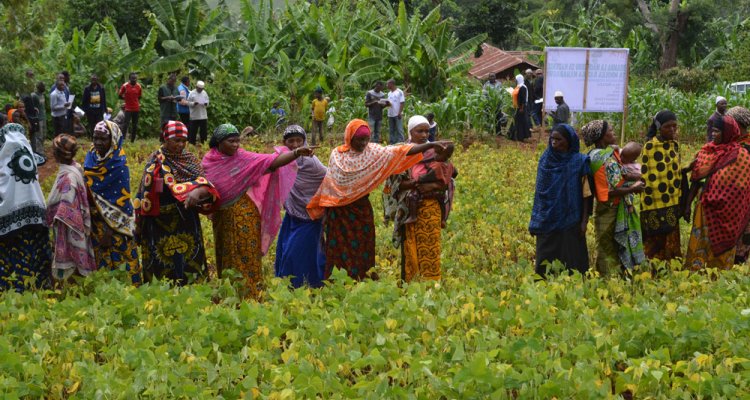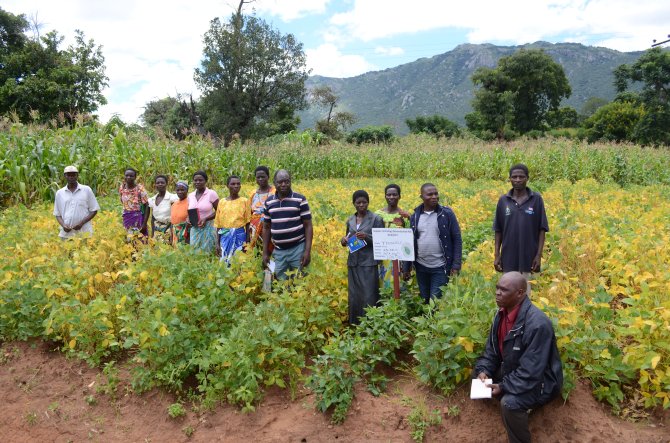
Project
N2AFRICA - Putting nitrogen fixation to work for smallholder farmers in Africa
N2AFRICA is a large scale, science-based “research-in-development” project focused on putting nitrogen fixation to work for smallholder farmers growing legume crops in Africa.
N2Africa will build sustainable, long-term partnerships to enable African smallholder farmers to benefit from symbiotic N2-fixation by grain legumes through effective production technologies including inoculants and fertilizers. The legacy will be strong national expertise in grain legume production and N2-fixation research and development. The capacity built will sustain the pipeline and delivery of continuous improvement in legume production technologies tailored to local settings. Activities focus on cowpea, groundnut and soybean in Ghana and Nigeria, on common bean, cowpea, groundnut and soybean in Tanzania and Uganda, and on common bean, soybean, chickpea and faba bean in Ethiopia.
Aims
With our work we aim to increase the benefits from legume nitrogen fixation by grain legumes for smallholder farmers in sub-Saharan Africa. The performance of a grain legume and the associated amount of N2 fixed depend on the interaction between the genotype of the legume, the genotype of the rhizobia, the environment and the management of the crop and field; (GL × GR) × E × M in short.
In practice
We select and test good potential legume genotypes, do research to identify the best matching rhizobia strains and try to optimize the management of legume fields. Testing of legume technologies by large numbers of farmers allows us to tailor and adapt legume technologies to specific sites and specific farmers, and to translate ‘best fit technologies’ at the field-scale into a set of best-fit principles and options for each project area.

Impact
By working through national systems, by training of all key stakeholders from farmers to traders, development workers in extension and NGOs, and by educating MSc and PhD candidates in each country, we build the capacity that can in the future sustain an independent and continuous improvement of legume production technologies.
Direct beneficiaries of N2Africa are the farming households with increased benefits from biological N2-fixation, such as greater food and nutrition security or increased incomes. Other direct beneficiaries of the project are agro-dealers supplying agro-inputs, seed producers engaged in the legume seed sector, staff from development agencies who benefit from hands-on capacity building activities, national system scientists who are exposed to new ways of doing science through the ‘development-to-research’ framework, and the private sector engaged in the production and promotion of inoculants and legume-specific fertilizer.
Click on the image to enlarge

By 2019, N2Africa will have
- Tailored and adapted legume technologies to expand the area of legume production within the farm and to close yield gaps and reduce yield variability in each partner country
- Built local expertise in each partner country
- Provided opportunities for the poor and enhanced their food and nutritional security
- Addressed gender disparities
- Established new value chains and engaged with input supply chain and output market actors to ensure a sustainable supply of legume-related agro-inputs
- Formulated improved inoculant products and developed cost-effective production and delivery methods
- Customized flexible dissemination approaches and made enhanced use of innovative data collection and communication tools
- Reached more than 550,000 farmers with a return on investment of US$3.5 for each US$ invested